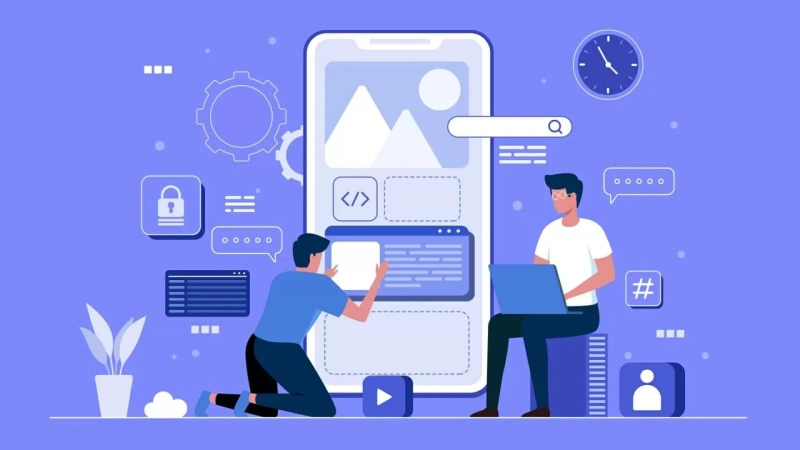If you’re interested in developing Android apps but don’t know where to start, this guide will help you walk through the various steps of creating your first app, from basic functions and features to third-party integration and marketing.
No matter how much experience you have as an app developer, this guide will show you what you need to know in order to build custom app development to boost business - if it’s only a fun side project or something that you hope might one day make you some money. Let’s get started.
Steps to launch your Android Application
Choose your app idea
A lot of people want to create apps, but they don’t know what they want to create. This is important because it means a lot of people are starting without a strong idea in mind—an app without a purpose or a specific use case is destined for failure.
Don’t be one of those people. Take some time and really think about what you want your app to do, who you expect will use it, how it will make their lives easier, and so on.
Learn about programming languages
Android is based on Java. If you’re just getting started with Android app development, it’s best to start with a programming language that you already know. If you have some programming experience, whether, from school or simply learning by yourself, you can use what you already know about Java to begin building Android apps quickly.
There are two main languages used in Android app development: Java and Kotlin.
The first thing you need for custom Android app development solutions is to decide which one you want to opt for the development process - Java is the oldest programming language and Kotlin is the modern one for the Android app development.
Think about design, user experience, and marketing
Design is everything—but it doesn’t matter how great your app idea is if no one can use it. Don’t overlook things like design and user experience (UX) just because you have a great app idea; if you want users to download your app, then it needs to be easy to use, too.
Once you have a good handle on UX, consider your target audience and marketing strategies: will they find value in your app? Can you convince them that they need it? Moreover, it is important to focus on several factors.
Get started coding in Xcode/Android Studio
An app development tool is a must if you want to create professional, high-quality apps. And since there are dozens of options out there, it can be hard to know which one is right for you. We recommend starting out with either IntelliJ IDEA or Android Studio, both of which offer excellent IDEs and solid Java code analysis tools.
Test on real devices
Testing on real devices is an extremely important part of app development. Real devices are different from each other; some might have more RAM, bigger screens, or more storage space than others. Android developers need to know how apps run on a variety of device configurations in order to optimize their code.
Integrate with Google Play Services and Analytics
When you create your app, Google Play Services gives you access to Google Analytics, which is a free tool that shows how people use your app. It’s easy to integrate with just a few lines of code—and you can see your stats as soon as your app launches.
Submit to Google Play Store
You can even submit your app directly to Google Play, bypassing Google’s official developer program altogether. So long as you follow a few simple rules, it’s easy and free (though somewhat risky) to get your app in front of millions of users—even if you don’t want those users paying for it. All you need is some basic knowledge of HTML, CSS, and Javascript.
You can also customize and measure events within your app using Event Tracking in Google Analytics. It is important developers should have in-depth knowledge and hands-on experience with the Google Analytical tool
Conclusion
Think of that dream app you’ve always wanted and then start planning how you would make it come true or partner with mobile app development company. We won’t tell you it will be easy, but with these tips in mind, there is no way your app will fail. App development is a lot more than just coming up with a good idea—it’s actually quite complicated and involves many stages like design, coding, testing, marketing, monetization, etc. Make sure you cover every aspect before releasing your app.



